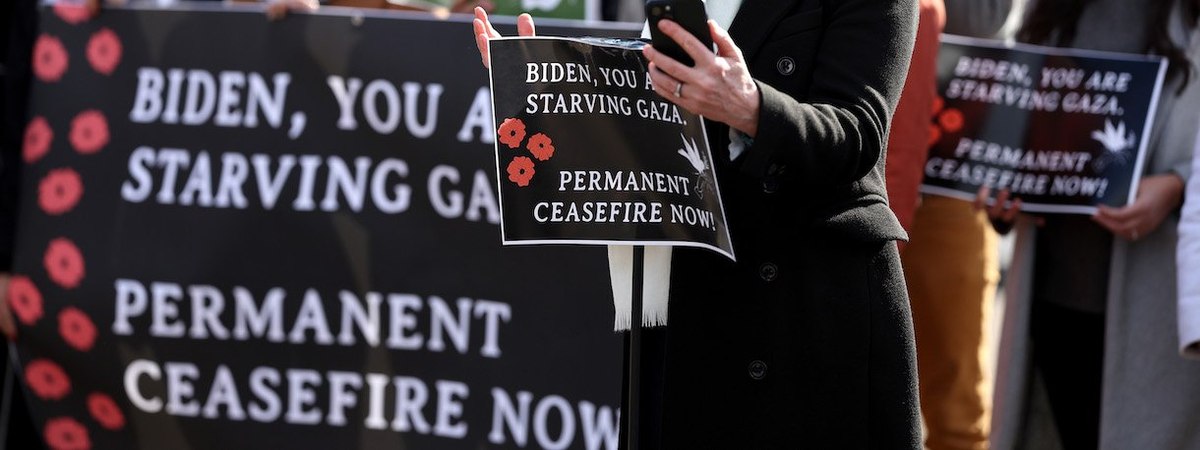Majorities of Americans support the idea of ceasefires in the ongoing Russia-Ukraine and Israel-Hamas wars.
Overall, 68% of U.S. adult citizens say they'd support Ukraine and Russia agreeing to a ceasefire, while 8% disagree. 65% support Israel and Hamas agreeing to a ceasefire, while 16% are opposed. (As of November 29, Israel and Hamas are in a temporary ceasefire for the purpose of exchanging prisoners.)
Majorities of Democrats, Independents, and Republicans say they support a ceasefire in each war. Democrats are somewhat more likely to support a ceasefire between Israel and Hamas, while Republicans are somewhat more likely to support a ceasefire between Russia and Ukraine.
Support for countries "agreeing to a ceasefire now" does not necessarily imply support for any form or terms of ceasefire, such as a country being pressured into unwillingly accepting one.
Israeli aid is more popular with Republicans, while Democrats are more supportive of aid to Ukraine
Partisan differences show up more strongly on the question of U.S. military aid to two of the countries engaged in fighting: Israel and Ukraine.
Overall, there's no consensus on levels of U.S. military aid to either country. 23% of Americans would reduce military aid to Israel, while 32% would keep it at the same level, and 21% would increase it. A slightly higher 28% of Americans would reduce military aid to Ukraine, while 27% want to keep it at the same level and 22% support increasing aid.
Aid to Ukraine is more popular among Democrats: 35% would increase aid and 11% would decrease it. That compares to Republicans: 19% would decrease aid and 44% would reduce it.
Aid to Israel has the opposite political trend. Here Republicans are more likely to support more aid, with 34% in favor and 15% wanting to lower aid. Democrats are more skeptical: 17% would increase Israeli military aid, half the 35% who would increase aid to Ukraine. 24% of Democrats would decrease aid to Israel, more than twice the 11% who would decrease Ukrainian aid.
That doesn't mean aid skeptics necessarily support the other side in these wars. While Republicans are 14 percentage points less likely than Democrats to sympathize more with Ukraine than with Russia, just 5% of Republicans say they sympathize more with Russia. The other 28% say they don't sympathize more with either side.
Similarly, while Democrats are 41 percentage points less likely to sympathize with the Israelis than are Republicans, they're only 11 points more likely to sympathize with the Palestinians. Instead, a plurality of Democrats say they sympathize equally with both sides.
— Carl Bialik contributed to this article
See the toplines and crosstabs from the Economist/YouGov poll conducted on November 25 - 27, 2023 among 1,500 U.S. adult citizens.
Methodology: Respondents were selected from YouGov’s opt-in panel using sample matching. A random sample (stratified by gender, age, race, education, geographic region, and voter registration) was selected from the 2019 American Community Survey. The sample was weighted according to gender, age, race, education, 2020 election turnout and presidential vote, baseline party identification, and current voter registration status. Demographic weighting targets come from the 2019 American Community Survey. Baseline party identification is the respondent’s most recent answer given prior to November 1, 2022, and is weighted to the estimated distribution at that time (33% Democratic, 31% Republican). The margin of error for the overall sample is approximately 3%.
Image: Getty (Kevin Dietsch)












